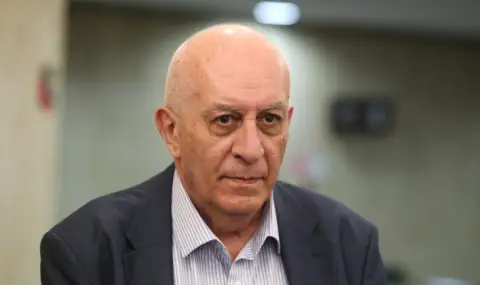The next parliament, although the contrary was persistently claimed, will not resemble the previous one in any way. This opinion was expressed in the program "Bulgaria, Europe and the world in focus" on Radio "Focus" the sociologist Yuriy Aslanov.
According to him, it is certain that "We continue the change" cannot be a key factor in the formation of possible parliamentary majorities, which were until now: "They will certainly not be able to fight for the prestigious second or third place in the ranking of the political forces represented in the parliament, how far it will fall in view of of the scandals that have broken out, which affect key names from their leadership, we still don't know because no actual measurements have been made, but we will soon learn," the sociologist emphasized.
Aslanov drew attention, however, that in any case, the way in which the current election campaign begins with scandals and with compromising materials in no way indicates that it will end in a different way: "This is the sad news, because this way of a campaign does not attract, but repels voters. Therefore, the most hardened and mobilized electoral Yadavs will appear before the ballot boxes, they are a minority, and the broad periphery may remain on the sidelines. When voter turnout is too low, it can destroy all previous predictions. We don't know yet if what's happening can make people angry and vice versa, but it's more likely that frustration and apathy will take over and we'll set another sad record for low voter turnout.
The sociologist added that Borisov is too confident in his power, that he will keep it as the most influential formation even after the elections: "That is why he dictates his conditions from a position of strength, which seem logical from the point of view of which is expected - that it will be the first political force, and PP-DB will get a comparatively much more modest result, which will not allow them to play a key role and set conditions".
Nevertheless, according to Yuri Aslanov, this logic can be broken, because in his words, once the logic is broken, referring to the assembly, it can continue to be broken in many directions: "And let us witness election results that are beyond current forecasts and expectations.
Aslanov pointed out that DPS no longer wants to be a hidden player, but wants to be a trick, an open and publicly recognized partner: "Borisov clearly realizes that although his formation is considered toxic and who has allied with her for her either good or nothing, but DPS is also such a formation. He is aware of this and is probably quite worried about planning such opportunities for an official coalition with this party, although in recent days and weeks the leaders of both formations - GERB and DPS have tried quite hard to wash themselves and smooth their public an image that was, to put it mildly, negative, and somehow they are already looking for official recognition and legitimization - whether this will happen we do not know yet, but it is possible that it will happen, given that certain hypotheses the elected deputies of these two formations may be sufficient for a majority or be sufficient to prevent any other majority from forming".
The sociologist drew attention to the fact that, in the end, the Bulgarian does not want Borisov and Peevski to govern him, but he does not decide, but that part, called the electoral body, which is a minority, decides: "What will the voters who will show up decide before the polls on June 9, we still don't know. And if the Bulgarian wants him to decide who governs him, he must appear at the polls.
